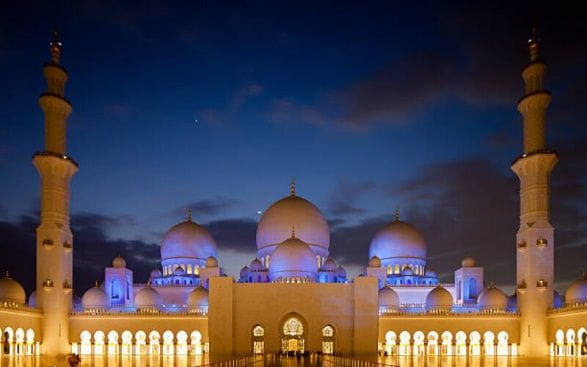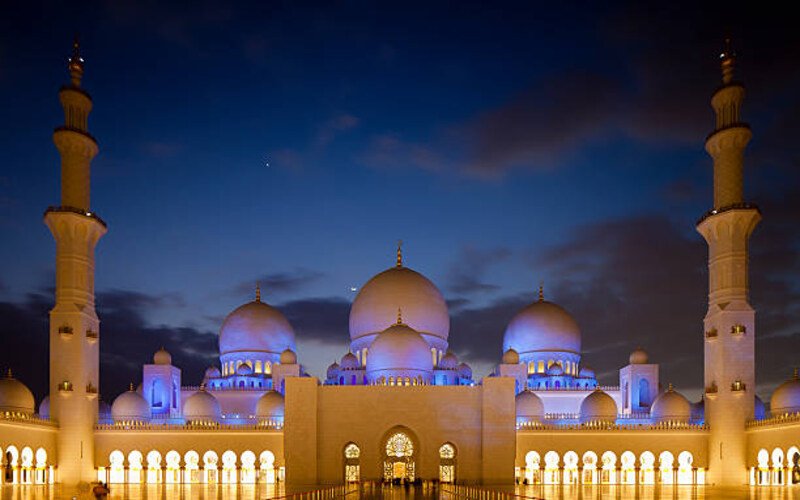Dubai’s rich heritage and vibrant culture offer visitors a unique glimpse into the city’s journey from a humble fishing village to a global metropolis. Beyond its skyscrapers and modern attractions, Dubai is deeply rooted in traditions that span centuries. Exploring the city’s historical sites, museums, souks, and cultural centers provides travelers with an authentic experience of Emirati culture, where they can learn about Bedouin traditions, Islamic art, and the heritage of the Arabian Peninsula.

From the narrow alleys of the Al Fahidi Historic District to the lively gold and spice souks, Dubai is a blend of old and new that invites visitors to immerse themselves in its cultural landscape. Cultural landmarks, like the Dubai Museum and the Sheikh Mohammed Centre for Cultural Understanding, offer hands-on experiences and insights into local customs, food, and traditional hospitality. For those seeking more than just luxury and entertainment, Dubai’s heritage sites provide a meaningful way to connect with the city’s past and its timeless values.
Here are some Top Places to Experience Dubai’s Rich Heritage and Culture.
The Historical Neighborhood of Al Fahidi
Visit the Al Fahidi Historical Neighbourhood to travel back in time. The area, which was once a significant administrative and commercial district, now provides a window into late 19th- and early 20th-century Dubai. Navigate the narrow streets and bright squares to learn about traditional architecture. Al Fahidi hosts a number of cultural events throughout the year, including Sikka Art Fair and Heritage Week. The neighborhood is teeming with museums, exhibitions, and cultural activities, so it’s always worth checking to see if there are any special events happening while you’re there. There are many traditional teahouses and cafes where you can experience the atmosphere of the past.
Souk Textile
A visit to one of Dubai’s colourful souks would be a must-do while there. Bur Dubai’s Textile Souk is the ideal location for fabric shopping or simply taking in the vibrant surroundings. Hundreds of reels of raw and embroidered fabric in an overwhelming variety of colours and textures are available for you to peruse here. Additionally, there are many ready-made ensembles from regional designers.
Bur Dubai Grand Mosque

In Bur Dubai, the Grand Mosque is a short stroll from the Textile Souk. This magnificent mosque, which was constructed in the traditional Islamic style, serves as the center of Dubai’s religious life. This architectural masterpiece, which is adorned with intricate geometric carvings and blue mosaic, is the most photographed mosque in Dubai after dark due to its breathtaking illuminations. The Imam Ali Mosque, also referred to as the Iranian Mosque, is located nearby. This mosque, which was established by the Iranian community in the area, is a true architectural wonder, with elaborate designs in the traditional Persian and Fatimid styles.
Dubai Creek
Small motorized water taxis called abras transport people between Deira and Bur Dubai. These traditional boats are the ideal way to explore the historic Dubai Creek and are incredibly affordable (just AED1 each way, cash only). When you get to Deira, visit the well-known Spice Souk to be surrounded by a diverse array of hues and scents from all over the world.
Special Kebab by Al Ustad

Al Ustad Special Kabab, which is close to Al Musalla Tower, serves delicious Iranian food. Since the 1970s, this diner has been serving deliciously authentic food and has become somewhat of a Dubai institution. It’s a warm and welcoming place with vibrant pictures on the walls. and an abundance of delicious kebabs on the grill.
The Museum of Al Shindagha
The ruling family settled in the historic neighborhood of Al Shindagha, which is situated on the creek’s shore, in the early 1900s. The Al Shindagha Museum honours the rich Emirati heritage as well as Dubai’s extraordinary history and culture. The museum’s “Story of the Creek” is a breathtaking multimedia experience that traces the development of modern Dubai along the Creek’s banks. The fragrant Perfume House, which teaches about traditional Emirati scented oils and perfumes and their significance in religious and cultural life, is also located there.
Conclusion:
Dubai’s heritage and cultural attractions offer visitors a fascinating journey into the heart of Emirati traditions and history. From the bustling souks and traditional dhow cruises to the historic Al Fahidi District, each destination provides a unique insight into Dubai’s evolution. These cultural sites not only showcase Dubai’s past but also celebrate the values and customs that continue to shape its identity today. Visitors can connect with local artisans, experience traditional Emirati hospitality, and explore museums and architectural gems that honour Dubai’s roots.
For tourists with a 30 days multiple entry visa, these heritage spots offer the flexibility to dive deeper into Dubai’s culture with each visit. Multiple entries allow travelers to experience the city’s cultural richness at a relaxed pace, making it easy to revisit favorite sites or explore new ones across different areas of Dubai. This flexibility is perfect for those eager to discover the authentic side of Dubai while enjoying its warm, welcoming spirit time and again. For more detailed information contact best travel agency in Dubai



